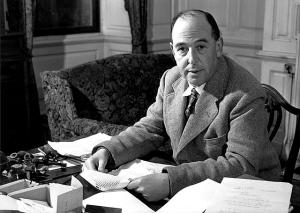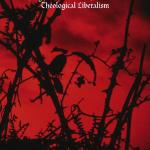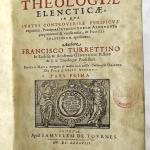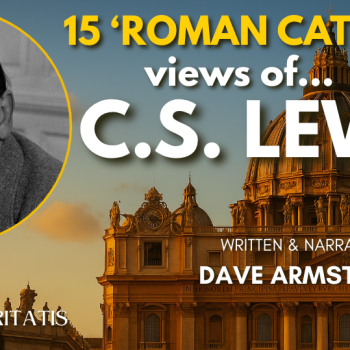In his book, Roman but Not Catholic: What Remains at Stake 500 Years after the Reformation (2017), co-written with former Catholic Kenneth J. Collins, Jerry Walls wrote in the Introduction:
We have heard from lots of people who have read John Henry Newman’s famous essay on doctrinal development and found his arguments compelling. I thought it might be helpful to hear from persons who have read Newman but found his arguments deeply confused and his conclusions badly overstated. (p. xxii)
C. S. Lewis is cited no less than 26 times in this book, but not from his book, Letters to Malcolm: Chiefly on Prayer (1963), where he lobs an unfair potshot at Cardinal Newman. I discovered this today in a post by Anti-Catholic Ignoramus Extraordinaire John Bugay (“C.S. Lewis: ‘Newman makes my blood run cold …’ “: Tribalblogue, 9-11-17). Bugay points out a passage from chapter 6 of that volume (pp. 29-30 in the Harvest / HBJ Book edition of 1964):
I can well understand how a man who is trying to love God and his neighbour should come to dislike the very word religion; a word, by the way, which hardly ever appears in the New Testament. Newman makes my blood run cold when he says in one of the Parochial and Plain Sermons that Heaven is like a church because, in both, “one single sovereign subject — religion — is brought before us.” He forgets that there is no temple in the new Jerusalem.
He has substituted religion for God — as if navigation were substituted for arrival, or battle for victory, or wooing for marriage, or in general the means for the end.
Now, I love C. S. Lewis. He’s been my favorite writer for 45 years, ever since my evangelical conversion to Christ. I have all his books (proudly displayed in my living room); I’ve read most of them, along with biographies and two huge volumes of his letters. I’ve seen many documentaries and movies about him. So I have no fundamental animus against him.
But he was dead wrong in this instance; most unjust and unfair to St. Cardinal Newman, whom he cited out of context and contrary to his clear intent. This is shoddy citation: all the more surprising for a giant and brilliant Christian scholar like Lewis. Put of charity and immense respect, I’ll assume that he was citing from memory and forgot the context. That’s the best case scenario.
Lewis cites just nine of Newman’s words from Sermon 1 in Vol. 1 of 8, “Sermon 1. Holiness Necessary for Future Blessedness”. I’ve had the collection of these sermons in one hardcover (Ignatius, 1987) in my library since it was published (when I was still a Protestant). Volume 1 was published in 1834, which (it should be noted) was eleven years before Newman became a Catholic.
At this point he was a very popular [“High” or “Anglo-Catholic”] Anglican priest: in the same denomination that Lewis never left. Thus, his thoughts came from a widely admired and praised Anglican mind, not a fully Catholic one. For Lewis to treat him so shabbily is, I submit, most likely a manifestation of his incipient emotional distaste for Catholicism, left over from his Belfast upbringing.
The mistake that Lewis makes here is, sadly, a very common Protestant one. It’s an irrational hostility to the word “religion” as if it’s a bad word, and something to be avoided. It’s no more “bad” word in Holy Scripture than “tradition” is: though one would never know this, listening to so many Protestants who seen to have an irrational unbiblical bone-seep aversion to both.
Lewis seems to completely misunderstand Newman’s argument in this sermon and his use of the word “religion.” The words “religion” / “religious” / “irreligious” appear twelve times in the eight-page sermon, but “holy” and “holiness” appears 23 and 21 times, because that is what the sermon is about. It was devoted to the Bible passage: “”Holiness, without which no man shall see the Lord.” (Heb 12:14).
In the course of this sermon, Newman is clearly using the words “religion” “religious” / “irreligious” as synonyms for pious Christian observance and practice and reverence towards God, or lack thereof. Here is Lewis’ brief citation of St. Cdl. Newman (in blue below, and bolding added) in its complete context:
Heaven then is not like this world; I will say what it is much more like,—a church. For in a place of public worship no language of this world is heard; there are no schemes brought forward for temporal objects, great or small; no information how to strengthen our worldly interests, extend our influence, or establish our credit. These things indeed may be right in their way, so that we do not set our hearts upon them; still (I repeat), it is certain that we hear nothing of them in a church. Here we hear solely and entirely of God. We praise Him, worship Him, sing to Him, thank Him, confess to Him, give ourselves up to Him, and ask His blessing. And therefore, a church is like heaven; viz. because both in the one and the other, there is one single sovereign subject—religion—brought before us.
Supposing, then, instead of it being said that no irreligious man could serve and attend on God in heaven (or see Him, as the text expresses it), we were told that no irreligious man could worship, or spiritually see Him in church; should we not at once perceive the meaning of the doctrine? viz. that, were a man to come hither, who had suffered his mind to grow up in its own way, as nature or chance determined, without any deliberate habitual effort after truth and purity, he would find no real pleasure here, but would soon get weary of the place; because, in this house of God, he would hear only of that one subject which he cared little or nothing about, and nothing at all of those things which excited his hopes and fears, his sympathies and energies. If then a man without religion (supposing it possible) were admitted into heaven, doubtless he would sustain a great disappointment. Before, indeed, he fancied that he could be happy there; but when he arrived there, he would find no discourse but that which he had shunned on earth, no pursuits but those he had disliked or despised, nothing which bound him to aught else in the universe, and made him feel at home, nothing which he could enter into and rest upon. He would perceive himself to be an isolated being, cut away by Supreme Power from those objects which were still entwined around his heart. Nay, he would be in the presence of that Supreme Power, whom he never on earth could bring himself steadily to think upon, and whom now he regarded only as the destroyer of all that was precious and dear to him. Ah! he could not bear the face of the Living God; the Holy God would be no object of joy to him. “Let us alone! What have we to do with thee?” is the sole thought and desire of unclean souls, even while they acknowledge His majesty. None but the holy can look upon the Holy One; without holiness no man can endure to see the Lord.
When, then, we think to take part in the joys of heaven without holiness, we are as inconsiderate as if we supposed we could take an interest in the worship of Christians here below without possessing it in our measure. A careless, a sensual, an unbelieving mind, a mind destitute of the love and fear of God, with narrow views and earthly aims, a low standard of duty, and a benighted conscience, a mind contented with itself, and unresigned to God’s will, would feel as little pleasure, at the last day, at the words, “Enter into the joy of thy Lord,” as it does now at the words, “Let us pray.” Nay, much less, because, while we are in a church, we may turn our thoughts to other subjects, and contrive to forget that God is looking on us; but that will not be possible in heaven.
We see, then, that holiness, or inward separation from the world, is necessary to our admission into heaven, because heaven is not heaven, is not a place of happiness except to the holy.
Lewis was thus wrong in three significant ways, by insinuating 1) that Newman “substituted religion for God”, 2) in his general tone implying that religion is somehow (or more often than not) a negative thing, to be frowned upon, and 3) that heaven is supposedly unlike a “church”. The first is a wholesale distortion of Newman’s meaning, understood properly in context, and the second and third things are blatantly contrary to the Bible.
Newman is preaching about worship in heaven: which is (from what we know in the Bible: chiefly the book of Revelation) primarily what takes place there. We won’t simply be sitting on clouds playing harps and hiking all the cool, glorious trails of heavenly paradise. We’ll be worshiping God, in union with Him. In what I cited, “worship” is mentioned four times out of a total of five. In the portion immediately before what I cited, Newman wrote / preached:
[S]o far we are distinctly told, that that future life will be spent in God’s presence, in a sense which does not apply to our present life; so that it may be best described as an endless and uninterrupted worship of the Eternal Father, Son, and Spirit. “They serve Him day and night in His temple, and He that sitteth on the throne shall dwell among them … The Lamb which is in the midst of the throne shall feed them, and shall lead them unto living fountains of waters.” Again, “The city had no need of the sun, neither of the moon to shine in it, for the glory of God did lighten it, and the Lamb is the light thereof. And the nations of them which are saved shall walk in the light of it, and the kings of the earth do bring their glory and honour into it.” [Rev. vii. 15, 17; xxi. 23, 24.] These passages from St. John are sufficient to remind us of many others.
None of this should be in the least objectionable to Lewis or any Protestant. For Newman, “religion” was, precisely, holiness, which in turn is devoted in heaven to worship and adoration of God. But Lewis seemed intent on forcing Newman’s meaning and intent (which is a virtual celebration of the ecstatic, blissful worship of God in heaven) into an incorrect negative conception of what “religion” means (an idol set against God).
And to further analyze that, we must consult what the New Testament says about it. That’s easy for me, since I already addressed the topic over a year ago in my article for National Catholic Register: “The Bible Makes It Clear: Religion Means Relationship With God” (6-18-21). Lewis wants to falsely make out that religion is somehow inherently antithetical to relationship with and worship of God. The Bible and Newman teach the opposite.
Lewis in this chapter of his book makes good and valid points about excesses and distortions of “religion.” But of course, absolutely anything can be distorted, including religion (2 Tim 3:1-5; “holding the form of religion but denying the power of it. Avoid such people”). Paul is saying those who are lousy at religion should be avoided, not those who are religious, period.
We don’t “throw the baby out with the bathwater” because this is the case. And he seems all too ready to throw out “religion” in terms of pious practice. This is where the New Testament can fruitfully educate us. Lewis stated that the word religion “hardly ever appears in the New Testament.” In fact, it appears six times [in RSV], and “religious” appears three more.
And this is in a New Testament where the word Trinity never appears, nor God the Son nor incarnation nor faith alone in a positive sense (it’s condemned in James 2:24), nor Scripture alone nor grace alone nor virgin birth nor omniscient, omnipresent, omnipotent (and I could go on and on). In light of that, nine appearances of religion or religious seems to me to be a fairly large number!
St. Paul describes religion as typified by “good deeds” (1 Tim 2:10, RSV). It’s a positive thing, not a negative one. Paul states:
1 Timothy 3:16 Great indeed, we confess, is the mystery of our religion: He was manifested in the flesh, vindicated in the Spirit, seen by angels, preached among the nations, believed on in the world, taken up in glory.
Here “religion” has to do more with the doctrinal creed or confession that we accept; it’s also used by Paul to describe his own former Jewish religious belief in Acts 26:5. That’s part of it, too. We observe and do certain things because of what we believe in faith. Paul and James define religion as a good thing:
Acts 17:22 Paul, standing in the middle of the Are-op’agus, said: “Men of Athens, I perceive that in every way you are very religious“.
Paul was complimenting the pagan Athenians. They worshiped an “unknown god” (17:23), so Paul took the opportunity to proclaim the one true God to them — to preach the gospel (17:23-31). He built upon what they knew, citing their own pagan philosophers and poets (17:28).
1 Timothy 5:4 If a widow has children or grandchildren, let them first learn their religious duty to their own family and make some return to their parents; for this is acceptable in the sight of God.
James 1:26-27 If anyone thinks he is religious, and does not bridle his tongue but deceives his heart, this man’s religion is vain. Religion that is pure and undefiled before God and the Father is this: to visit orphans and widows in their affliction, and to keep oneself unstained from the world.
***
Practical Matters: Perhaps some of my 4,000+ free online articles (the most comprehensive “one-stop” Catholic apologetics site) or fifty books have helped you (by God’s grace) to decide to become Catholic or to return to the Church, or better understand some doctrines and why we believe them.
Or you may believe my work is worthy to support for the purpose of apologetics and evangelism in general. If so, please seriously consider a much-needed financial contribution. I’m always in need of more funds: especially monthly support. “The laborer is worthy of his wages” (1 Tim 5:18, NKJV). 1 December 2021 was my 20th anniversary as a full-time Catholic apologist, and February 2022 marked the 25th anniversary of my blog.
PayPal donations are the easiest: just send to my email address: [email protected]. You’ll see the term “Catholic Used Book Service”, which is my old side-business. To learn about the different methods of contributing, including 100% tax deduction, etc., see my page: About Catholic Apologist Dave Armstrong / Donation Information. Thanks a million from the bottom of my heart!
***
Photo credit: Aronsyne; C. S. Lewis in 1951 [Wikimedia Commons / Creative Commons Attribution-Share Alike 4.0 International license]
***
Summary: C. S. Lewis, whom I love, was dead wrong when he attacked St. Cardinal Newman falsely with regard to his use of the word “religion” in an 1834 Anglican sermon.














